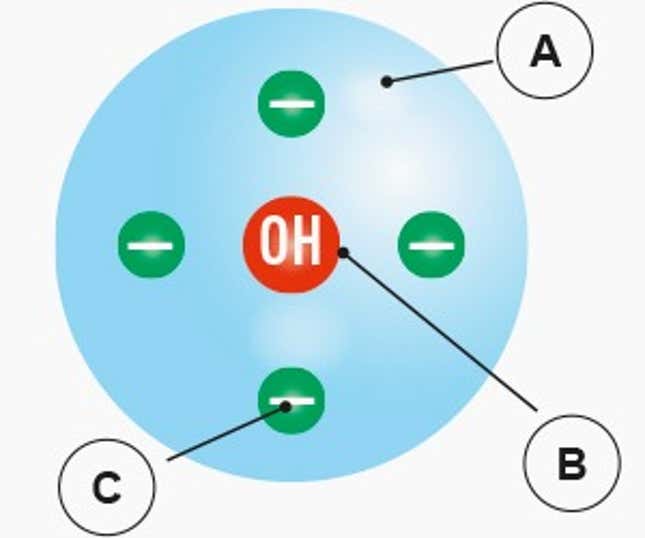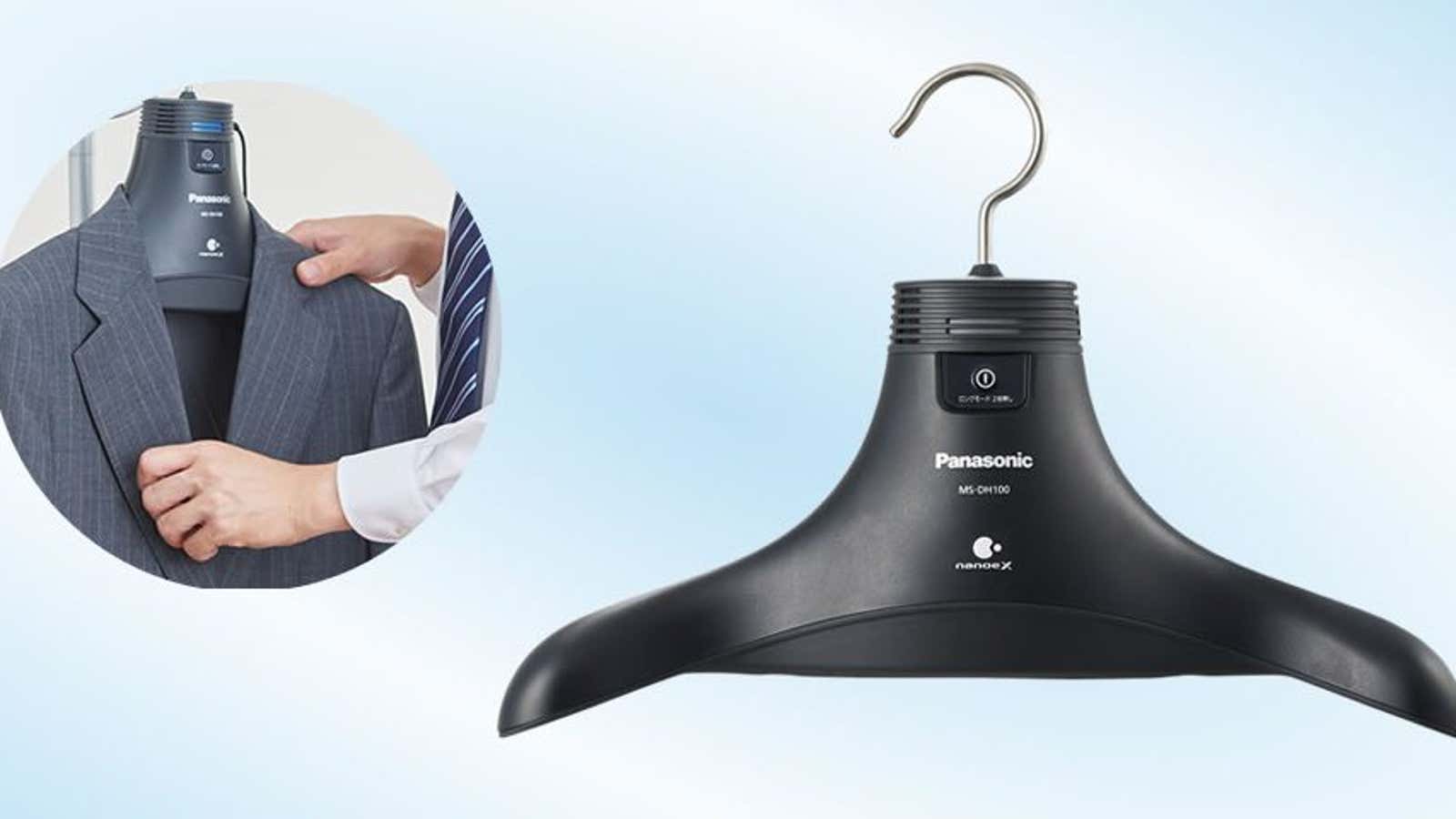Panasonic will soon release a new way for you to freshen up your clothes that it claims involves nothing more than hanging them up.
Come September, the Japanese consumer-electronics maker will release a high-tech hanger that, according to the company, uses nano-sized, electrically charged particles to deeply penetrate clothing fabrics and eliminate odors. Panasonic’s proprietary technology, called NanoE, creates the electrostatic particles by applying a high voltage to the water moisture in the air. Tinier even than steam, they release from eight different spots in the hanger to spread through the garment and break down odor-causing substances.

Panasonic says it tested NanoE against the smells of sweat, cigarette smoke, and grilled meats, so basically the sorts of smells you might accumulate during a night out partying or at a summer barbecue. As an added bonus, it says the particles enclose and suppress allergens, such as pollen and the corpses and droppings of dust mites that are probably on your clothes. (You need to use the hanger inside a garment bag to treat odors and substances clinging to the outside of clothing.) Panasonic has previously noted that NanoE can inhibit bacteria, mold, and viruses, such as the flu.
The company has been working with NanoE for years, mostly making use of its ability to help skin and hair stay moisturized through products such as facial steamers, humidifiers, and hair dryers, which have gotten positive reviews. But it has also been testing its deodorizing abilities since at least 2012, when it tried it out in pet shops.
The new NanoE hanger needs to be plugged in, which means if you don’t have an electrical outlet in your closet, or unless you’re willing to run an extension cord, you would need to hang the garment up somewhere else. It will also cost 20,000 yen (about $180), which is more than most people would spend on a hanger, and doesn’t remove stains, just smells. The hanger is also only scheduled for release in Japan, meaning it could be tough to get one.
Still, there does seem to be demand for (or at least an increasing supply of) gadgets that simplify the tedious tasks involved in laundry, even at high prices. Laundroid and FoldiMate, for instance, both make robots that fold your clothing, and cost several hundred dollars apiece.
